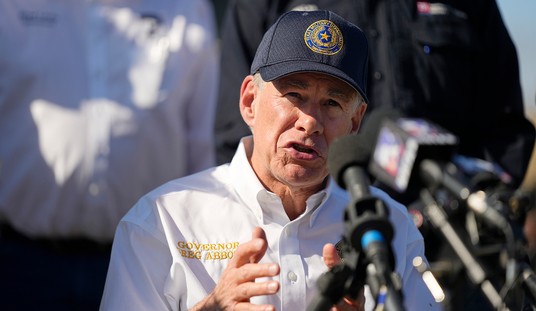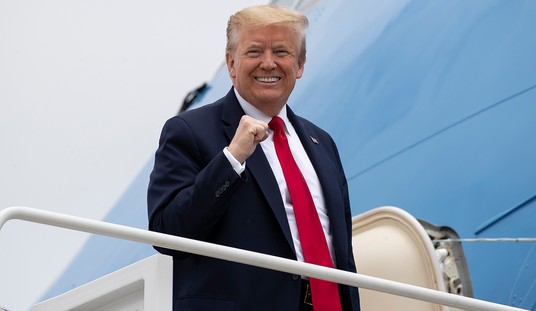We knew there was going to be a market reset and a liberal media schadenfreude fest over the initial reaction to President Trump’s tariff policy. The market had a massive sell-off on Friday, trillions have been wiped off the books, and the media and the Democratic Party are trying to make this like the 1929 crash. It’s not. Let me be clear: others have also said this: a market reset was bound to happen. The era of super-spending that Biden ushered in, which created the inflation crisis, is over. This spending spree artificially propped up Wall Street, and they don’t like tariffs.
Trump was voted in to shake up the order, not just in DC but on the sociopolitical scale, where everyone wants a return to a strong manufacturing base. The infuriating part is that we know this is an issue, with the COVID pandemic exposing how we’re overreliant on foreign nations for protective gear. The CHIPS Act was passed to restore semiconductor manufacturing stateside due to overexposure to foreign markets for microchips.
— Eric Daugherty (@EricLDaugh) April 5, 2025
This administration isn’t looking to bring back t-shirt manufacturing, folks. It’s all about high-skill manufacturing jobs, and these tariffs aim to reset the system and incentivize their return to American soil. Michael Shellenberger has a lengthy essay about all of this, highlighting one thing that could fuel anti-tariff forces: their hatred of working people.
Kevin O'Leary defends President Trump's reciprocal tariffs with ease on CNN.
— Thomas Hern (@ThomasMHern) April 5, 2025
"The economy is just fine. Now maybe you don't like watching sausage being made. Obviously Trump doesn't care." pic.twitter.com/CtyLu5eDOP
Do we need elites? Sure, and Shellenberger cited a British historian, Arnold J. Toynbee, who argued that when civilizations die from suicide, it starts when this class, whom he dubbed the “creative minority,” no longer identifies with their nation-state and begins to associate more with elites from other nations.
Recommended
Shellenberger fleshed out Trump’s economic policy that isn’t soaked in DNC talking points, the way CNN and MSNBC have debased themselves. And yes, he noted this will be a short-term pain for a long-term gain approach, and that any economic policy that’s guided through potential short-term pain on Wall Street isn’t wise:
Liberals and conservatives, Leftists and Rightists, have long shared a broad agreement that manufacturing and its knock-on industries are an essential source of employment for non-college-educated working-class people, and that the loss of manufacturing contributed to social fragmentation, family breakdown, and the drug addiction and death crisis. In a 2024 survey, Americans agreed ten to one that “we need a stronger manufacturing sector; 47% said America suffered from globalization, while 33% said it benefited. It is partly for that reason that Joe Biden, in perhaps the most bipartisan and non-ideological decision of his presidency, kept in place the tariffs imposed by Donald Trump during his first term as president.
[…]
…it’s unwise to evaluate policies based on the short-term impact of the stock market. Anti-tariff voices grossly overstate the comparative advantage when it comes to manufacturing, and the postwar system, economically and militarily, is no longer in the interests of non-college-educated Americans, who are both more vulnerable and more numerous than the college-educated elite. There is no need to bring back a significant amount of low-skill and nonstrategic manufacturing like T-shirts, and Trump has not advocated that. America may need to bring back some low-skill jobs, such as manufacturing protective gear. But our priority should rightly be high-skill manufacturing, and CARES, CHIPS, and the Trump-Biden China were, obviously, not enough. It may be fine to rely on Canada for aluminum. But the tariffs against it and Mexico, as well as Trump’s stated desire to make it the 51st state, should be viewed as the president negotiating in preparation for upcoming trade talks between the three countries.
While offshoring manufacturing policies benefited multinational corporations, bankers, and consumers, they often devastated communities built on manufacturing, mining, and manual labor. US companies moved production to countries with lower labor costs, fewer regulations, and subsidized exports. Economists calculate that just the so-called “China Shock,” that country’s entry into the World Trade Organization, alone cost the U.S. 2.4 million jobs and had ripple effects across entire communities. The average manufacturing wage is $103,000 per year compared to $37,000 per year for the average service sector wage. And where a service sector job supports 2 to 3 jobs, a manufacturing job supports nine jobs.
[…]
Voters elected Trump twice to produce this renewal, and he is implementing the vision and policies he promised. Americans voted for nationalism. Trump transformed the Republican Party into a nationalist party that puts America’s interests before those of other nations, as well as before the stock market. In the process, he won over many people who had previously been on the Left, and with Democrats, including black, Latino, male, and younger voters. Trump won significantly more low-information voters than Kamala Harris, which shows how deeply his vision penetrated and appealed to the most disaffected, alienated, and disillusioned Americans.
Why won’t many on the Left and Right accept this reality?
I think many fundamentally disagree with the new nationalist paradigm. There is no way to predict, calculate, or quantify the benefits of Trump’s trade actions. To a significant extent, he is making it up as he goes along, something voters trust him to do given his experience as a negotiator. It’s impossible to accurately calculate how much the tariffs will cost because we don’t know how nations will respond to them and how Trump will respond to their response. What’s certain is that there will be a lot of interaction on all sides. That frustrates many economists and others who believe strongly in the value of neoclassical economic calculations and theory. It feels too political and inefficient as compared to the market. That discomfort is likely to intensify.
[…]
… I think many college-educated genuinely don’t relate to or care that much about their fellow Americans. While that may seem harsh, look at how the critics of the Trump tariffs are talking. Few to none have mentioned that half of Americans have no money in the stock market. Few even mention the reasons why Trump is enacting tariffs in the first place. The media is effectively depicting Trump’s actions as irrational and nihilistic, as though he isn’t doing them for the reasons he and others have given for doing them since the 1980s, which is to benefit American workers and their communities. This oversight is partly the result of elites living in a bubble and being concerned with their own lives and not the working class. But that oversight, and the bubble, both speak to the extent to which American elites really don’t care about and, in some cases, actively dislike their fellow Americans. At a minimum, much of the elite class doesn’t respect the working class. If they did, they would at least recognize the longstanding consensus on Left and Right that globalization hollowed out America, that we remain dangerously dependent on foreign imports, and that what we have already done has proven grossly insignificant in revitalizing manufacturing and the working class.
The global elites are inducing this sell-off by betting against the American worker. The elites at home endorse it. They cannot allow Trump to succeed in protecting the working class, laying the groundwork for the return of a homegrown high-skill manufacturing base, and nations resetting their tariff structure on American goods that have been around for years. Upsetting the order is bound to cost them; they can absorb these costs. What is true is that these experts and economists who promised sunshine and lollipops via unbridled free trade decimated the middle and working classes. It’s why Democrats and Republicans now have voter bases that are majority free-trade skeptics.
We voted for this, and it’s time to implement it. The March jobs numbers were robust, shattering initial projections. But now, certain Fed branches and banking institutions are telling us a recession is coming after a little market pain and a policy rollout they don’t like. That's too bad.
























Join the conversation as a VIP Member